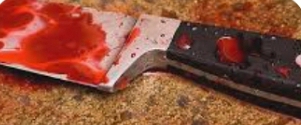
TAI SOLARIN WRITES FROM INDIA
…Lesson We Can Learn
By Tai Solarin
I have been going through Madras since I flew in from Bangalore.
I told India Council for Cultural Relations which has been responsible for my day – to -day programmes to leave me alone in the afternoon to look at India through the eyes of some of the Nigeria students who studied in the city.
I told the boys I wanted to see the “depressed “parts of Madras. I knew this was not Stockholm which H.G Wells described as the only city in the world without a slum.
We went round and I saw plenty. I do not like India less for seeing so many people who would be best described as “down and outs”
I expected to find in the capital of this state with 40 million people, thousands whose lot was grim.
Fighter Planes
What I always find myself asking, is what the country is doing to relieve the lot of these thousands of “down and outs.”
India, like Nigeria of 1964 was in 1944 not a manufacturing country. Leland Stowe, an American writer, told us in his book. “They shall not sleep” that the British were afraid of starting a spare parts factory for the American planes serving in India because they ( the British) were worried as to what would happen to such factories’ after the war.
Today, India manufactures her own planes . I saw two fighter planes manufactured by India. They were being tested on Bangalore before being released to the India Air force.
India manufactures its own bicycles. If India was suddenly cut off from the rest of the world it could live, almost indefinitely, without going on its knees. If Nigeria was suddenly cut off from the rest of the world. We would go on our knees in six weeks.
Hand Weaving
Only one question I just want to get answered here – how India gets its peasant folks engaged.
Gandhiji is there with its clarion call to hand loom weaving. Millions of men and women, literate or not, are seriously engaged in hand weaving everyday, and million of yards of cloth are produced by India’s silent millions of pairs of hands.
There are millions fettered
to agriculture, Without the pairs of hands from the peasantry, rice growing would be impossible on the paddy field.
As we drive back from a 40 mile car ride from the South of Madras, I saw what looked like bags of cocoa lined up in battalions near the sea shore, I was told it was all salt.
We climbed down the umpteenth time and talked to workers , India does not import an ounce of the salt which it’s 450 million people consume.
It does not cost the India peasant one penny capital to produce salt. When I get to Ikeja Airport later on this month, I shall be hiding in my bag about five pounds of salt which was given to me by the Indians who have ingeniously snatched it from the sea.
Unless a smart Alec starts the business before I get back home, I swear I have bought my last ration from Nigeria importers.
Henceforth I am going to cook my pepper soup with salt manufactured in Nigeria.
When, 17 years ago, India got her independence, it stopped the importation of as many as 200 items being imported up to that date. It was not a question of trial by slow pace. The items were immediately and brusquely stopped.’
Today, the items that may not be imported must number more than 500. I tried it out earlier on today by entering a big grocery shop here at Mysore.
I spent fifteen minutes with the gentleman who ran the shop. He let me climbed his ladder to pick out anything I wanted to see from the remote corners. Every item of food here, everywhere else – tinned or fresh, is manufactured or planted in India.
“Britannia Biscuits” were made in Madras.
Pineapple jam and pineapple juice were both canned in Bangalore.
Read this: “Fiat 1946 11 H.P. Perfect condition. PR 3500”
Forget about the price, would you, as a Nigerian buy that car ? Note, again, it is a 1946 car ! Neither you nor I would have a look at it in Nigeria. But the Indian has no choice. India wants to live and live respectably.
You will have to do without a car. I have not seen a brand new car on the road in the three cities of India I have gone through.
All the cars are bone- shakers. They are like “Johnny Walker. born 1820, still going strong ” !
Fundamentals
In Nigeria you can get any car, from any country in the world. All you need is your money.
No foreigner can qualify to build for India. As an Indian contractor, If you build a body trap, your contract agreement will give the house enough time to rest and fall down. You, The Contractor, will rebuild at no extra cost to the owner.
To save Nigeria, the NCNC, the Action Group, the NPC and the UPP must sit down and agree on certain fundamentals, irrespective of who will win election to carry them out .
That all food importation to Nigeria shall stop. That no textiles be henceforth imported to Nigeria.
Let us plant our food ! Let us weave our dress materials. Let us stop the beginning of our end.
-Sen. Babafemi Ojodu












